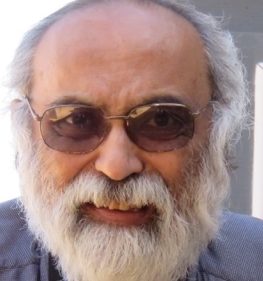A case of mental shrine of a dead husband
I was referred an Indian girl, aged 18. She had come to visit her maternal uncle. She was suffering from an obsessive-compulsive neurosis. She had seen several psychiatrists in her region, in southern India. She was in UK for holidays and break. Her maternal uncle was a general practitioner and friend of mine. He asked me to see her.
She was suffering from an obsessive-compulsive neurosis for about a year. She had a number rituals regarding washing and cleanliness. She was on appropriate medication prescribed by her Indian psychiatrist. There was not much improvement in her clinical condition.
I started my enquiry into her life. She was a daughter of a famous general practitioner. When she was just 16 years old, she met a young man of 19. He immediately fell in love with her. About six months after an initial meeting he started asking for marriage. She had no feelings for him. She rejected his proposal. He continues to pursue her. After seven negative responses from my patient Anita, he started threatening her. He attempted several wrist cuttings. He also took an overdose. Anita harassed by his behaviour, out of pity, agreed to marry him. Her family tried to change her mind, but she remained adamant. Her marriage was disaster. A month after their wedding, her husband committed suicide. After this grief, some stage she developed her symptoms. Few months after this incident, her father started talking about her remarriage. Anita refused to enter in any discussions and declared that she was never going to get married again.
It seemed to methat she was holding considerable guilt and saw herself responsible for his death. Next several sessions I explored Her guilt. I explored why she felt responsible for his death. I was able to show her, inadequate aspect of her husband’s personality. After several discussions she was able to see did she had agreed to marry him under pressure and out of guilt, as she was unable to walk away from him. These discussions, lead to a reduction of her guilt and symptoms. In a professional meeting I met her maternal uncle, who told me that whatever I was doing was working and I should continue.
In the next phase I started exploring about difference between pity and love. Confusion between the two needed to be sorted out, pity is not love and it is an inadequate reason to start relationship. End of all this discussion I asked her, if in reality she loved her Dead husband very much so that she has cleared its shine in her mind and wanting to live that rather than start a new life. I asked to think about it in her own space.
The next time I saw life she was symptom-free. I saw her again a couple of times and help her stop medication. About a year later I had an invitation from Anita’s maternal uncle to India to her wedding.
In Psychiatry, we too much concentrate on symptoms and not fully recognise the person behind the symptoms. It seems to me that a person’s life, incidents in a person life generates negative emotions like anxiety, depression, guilt, shame, anger etc. These negative emotions express themselves in the different psychiatric conditions. Hence, I think it is important to explore a person’s life and traumatic incidents. It took fourteen hours of my time but changed her life.

